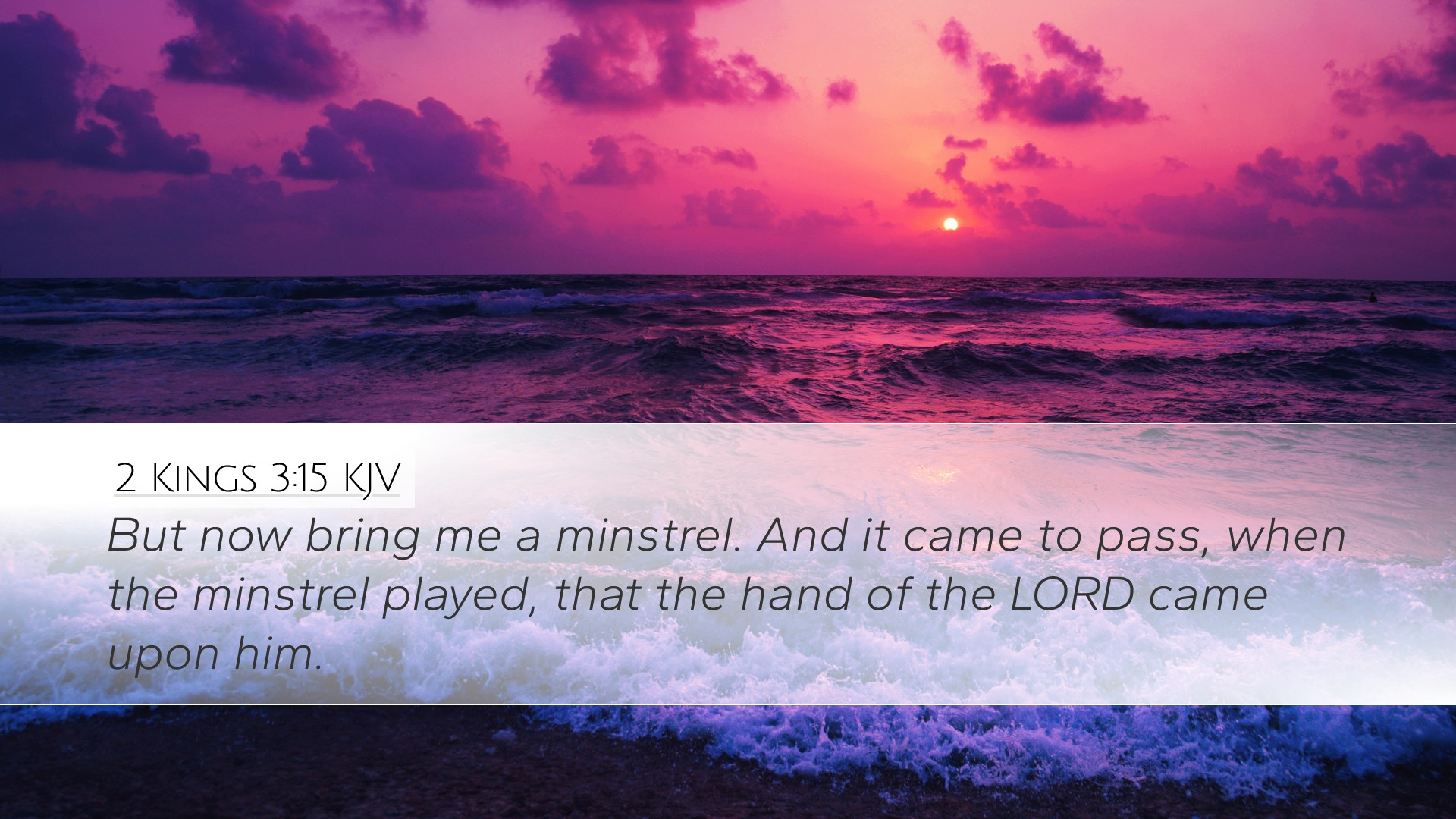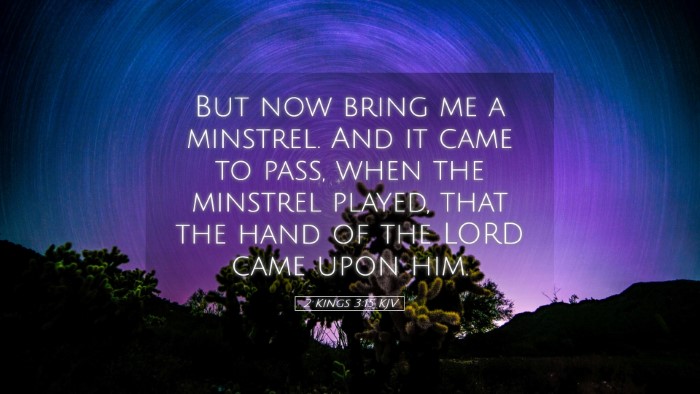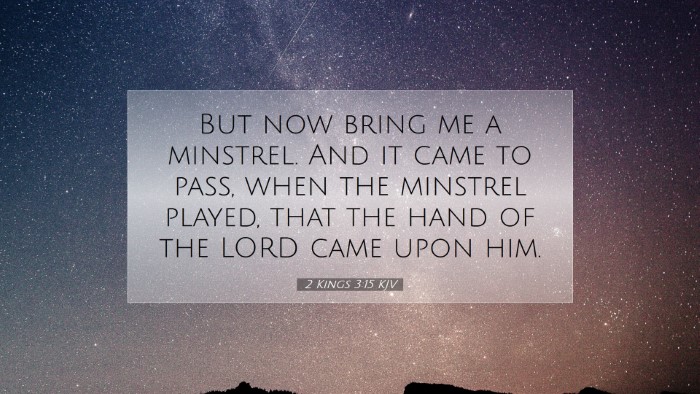Commentary on 2 Kings 3:15
Verse Context: 2 Kings 3:15 states, “But now bring me a musician.” When the musician played, the hand of the Lord came upon Elisha.” This verse presents a vital scene where the prophet Elisha calls for a musician, indicating the significant role of divine inspiration and worship in prophetic ministry.
Introduction
This commentary combines insights from various public domain sources, drawing from the works of Matthew Henry, Albert Barnes, and Adam Clarke. The focus will be on the relevance of this verse regarding prophecy, worship, and the influence of music in spiritual settings. The text invites a deeper exploration into how worship through music engages the divine and prepares the way for prophetic utterance.
Exegesis of the Verse
Immediate Context: This verse occurs in a narrative where Jehoram, king of Israel, seeks counsel about a military crisis against Moab. This scene reveals layers of Israel’s spiritual state, illustrating their dependence on God, albeit with a mixture of idolatry and sin. Elisha’s role is crucial; he embodies the prophetic voice that speaks for God amidst the chaos of a declining monarchy.
Role of Music in Worship
Matthew Henry emphasizes the significance of music in worship. He notes that music has been an integral part of expressing devotion to God since ancient times. Elisha's request for a musician highlights the belief that music can create an atmosphere that facilitates divine encounters. The act of calling for a musician before delivering God’s message demonstrates the power of worship in prophetic ministry. It signifies that spiritual revelation is often preceded by a posture of worship and submission.
Elisha’s Prophetic Ministry
Albert Barnes comments that Elisha was known as a servant of God who relied heavily on divine inspiration for guidance. In this context, the act of bringing in a musician suggests that Elisha recognized his need for God’s presence to deliver His message effectively. The musician’s role is critical; it serves to divert the king’s focus from his troubles and instead engage him in worship, setting the stage for God’s intervention. This blending of music and prophecy may also indicate the need for divine assistance in addressing spiritual warfare, particularly when confronting powerful enemies.
Theological Implications
Adam Clarke contributes to the theological understanding by noting that music is both an art and an expression of the soul. In the presence of worldly distress, Elisha sought a medium through which to draw near to God. Clarke would argue this interaction emphasizes that God communicates through various forms, including music, which aligns human emotion with divine inspiration. This scene exemplifies the notion that music can transcend mere entertainment, becoming a channel of divine presence that allows believers to encounter God profoundly.
Application for Pastors and Theologians
For pastors and church leaders, this verse serves as a reminder of the importance of creating an environment conducive to the movement of the Holy Spirit. The integration of music into worship settings can lead to transformative experiences where individuals are opened up to God’s voice and direction. In preaching and teaching contexts, this encourages an integration of worship into the learning process.
- Encouraging Worship: Promoting a culture of worship within church communities, ensuring music is a central aspect of ministry.
- Dependency on God: Recognizing and teaching that prophetic guidance and divine intervention often arise when believers seek God earnestly.
- Fostering a Spirit of Expectation: Engaging congregations during worship to anticipate God’s response and revelation, paralleling Elisha's anticipation in seeking divine counsel.
The Influence of Music on Faith
The profound influence that music can have on one’s spirituality cannot be overstated. It serves as a powerful tool for reflection, meditation, and emotional connection to divine truths. Enhanced by lyrical content, music resonates with believers on both an intellectual and emotional level, heightening the engagement with scripture and God’s calling.
Reflection Questions:
- How can your church better utilize music to foster an environment of worship and revelation?
- In what ways can you incorporate the principles of Elisha's approach in your ministry practices?
- Are there opportunities in your teaching or preaching where music could significantly enhance the message conveyed?
Conclusion
2 Kings 3:15 encapsulates a profound moment where the ordinary act of calling for a musician becomes a pivotal action leading to divine guidance. The reflections from the commentaries underscore that music serves not only as a means of expression but as a significant avenue through which God’s voice is heard. As spiritual leaders, embracing music as a conduit for prophetic insight and divine encounter may lead to deeper worship experiences and a more profound understanding of God’s will.


